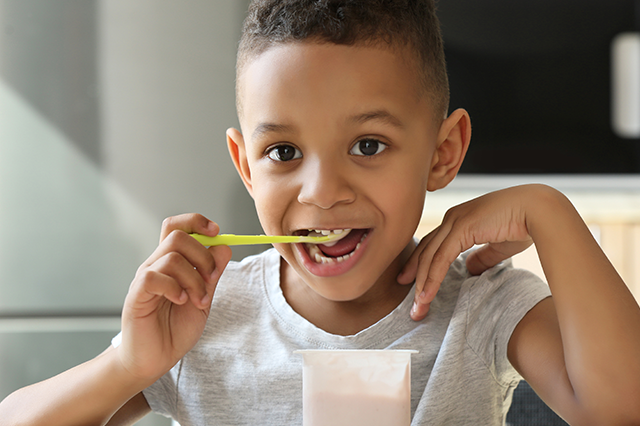What Are Soft Foods to Eat After Dental Work?

Recovering from a particularly intense dental procedure or surgery? Oftentimes, the initial procedure is only half the battle— keeping up with your aftercare while you heal is just as crucial, and an important part of your aftercare is eating foods that won’t irritate, or worse, damage the site where the dental work was done. While it might feel a bit inconvenient to change your diet while your mouth heals, we promise it’s worth it. Plus, the list of foods you can safely eat might be lengthier than you would initially expect. If you’ve been looking up soft foods to eat after dental work and are now envisioning yourself exclusively drinking smoothies for days on end, allow us to broaden your horizons a bit. (Unless you really like smoothies, in which case, go for it!)
Foods to Eat:
Sweet Options
-
Oatmeal
-
Smoothies (there are tons of recipes out there!)
-
Nutritional/protein shakes
-
Ice cream
-
Yogurt
-
Pudding
-
Applesauce
-
Soft fruits (bananas, kiwis, raspberries, etc.)
Savory Options
-
Soup
-
Mashed potatoes
-
Scrambled eggs
-
Cottage cheese
-
Well-cooked pasta
-
Ground beef
-
Soft fish
-
Tuna or chicken salad (make sure you’ve nixed any of the celery, nuts, etc. it sometimes comes with)
-
Steamed or roasted vegetables
It’s especially important to have a steady source of protein during this time, since protein helps your body heal itself faster. It’s also beneficial to eat a wide variety of foods from this list if you can, in order to get the other essential nutrients that your body needs, too.
Foods to Avoid:
Just so there’s no confusion, here’s what you don’t want to have after dental work:
-
Spicy foods
-
Seeds, peppercorn, and popcorn
-
Acidic food & drinks (especially tomatoes/tomato based products, orange juice, coffee)
-
Anything especially chewy or crunchy
A word to the wise: it’s not just about texture— temperature is important, too, whether it’s a food or a beverage. You’ll want to avoid eating or drinking anything while it’s at a very high temperature, due to the potential irritation it can cause the gum tissue of the affected area.
Why Soft Foods?
You might be wondering, “Do I really have to follow this advice?” If you want your mouth to heal as quickly and as painlessly as possible, the answer is yes. Sticking to soft foods that require minimal chewing will prevent pain and discomfort while the affected area in your mouth is still vulnerable and sensitive. Plus, you’ll ensure that you reap the full benefit of the procedure and see the best results by taking proper care of the area. Make sure you stick to your soft food regimen and avoid introducing chewier/crunchier foods back into your diet until you have the go-ahead from your dentist.
While it’s very important to take dental procedures and their aftercare seriously, we don’t want to frighten you. As long as you err on the side of caution, you’ll be on the mend in no time! If dental work is a big source of worry for you, be sure to check out our tips for reducing dental anxiety. We also have an experienced team who will handle all of your dentals needs with great care!